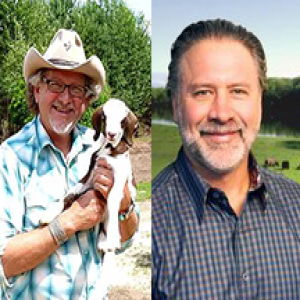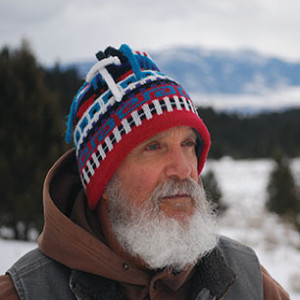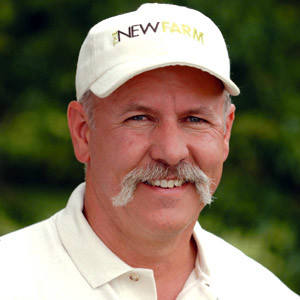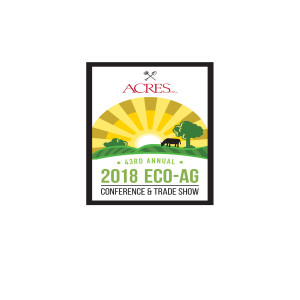Episodes

Wednesday Mar 27, 2019
Wednesday Mar 27, 2019
Good day and welcome to Tractor Time, brought to you by Acres USA, the Voice of Eco-Agriculture. I’m your host, Ryan Slabaugh, and it feels like a spring day here in Greeley, Colorado, where we are recording episode 27 on this 20th day of March in 2019.
It’s been a very interesting week in eco-agriculture, and while I don’t want to get too much into the news, it’s worth mentioning that we have a bunch of customers lose buildings to the heavy winds and flooding in the Midwest and out near our offices, we are following another Monsanto trial that decided the behemoth is responsible for informing its users about the potential risks, including cancer, and the European Union has decided to investigate both Monsanto and Exxon’s involvement in climate change denials.
So the pressure’s on. A lot of people I’ve talked to think a vacuum is coming, where Roundup will be replaced by something … and we know the toxic race is on, but we sure hope some farmers can find a way to use nutrient-based farming techniques on part of their land.
At least, that’s why we are here today. We are going to talk to Jodi Helmer, a journalist, gardener and author of six books, who with Island Press is releasing a new book, Protecting Pollinators (Island Press, available in the Acres U.S.A. bookstore.) We wanted to take this chance to talk bees and butterflies … and even long-nosed bats. We haven’t had an episode dedicated to this topic yet, so we needed one, as we know pollinators are one of the secret ingredients for growing food that we’ve neglected to include in a lot of our commercial agriculture systems. We’ll learn more about where we are with this today, how the protect the bees movement is doing, and what we can do with the land we own, rent and work at to help foster a better environment.

Monday Feb 25, 2019
Monday Feb 25, 2019
Good day and welcome to Tractor Time, brought to you by Acres U.S.A., the Voice of Eco-Agriculture. I’m your host Ryan Slabaugh, and I’m happy to bring you the 26th episode of our podcast. Thanks again to Albert Lea seeds for making this episode possible.
A few announcements — Minnesota is the theme of today’s show. Acres USA will be in Minnesota in December for our annual conference, and one of the reasons — other than the great December weather there — is the amount of trailblazing agriculture that is going on in that region. You can learn more about our event at www.acresusa.com — tickets will go on sale later this spring. But before that, we’ll get into some of that agriculture, and talk to some of the country’s original grassfed beef farmers.
Today, we’re going to have two cattlemen on the show to discuss their operations and some current topics, a few of which are creating quite a debate: Matt Maier, with Thousand Hills Cattle in Minnesota, and Will Winter, a teacher of holistic animal medicine and founder of the American Holistic Livestock Association. I met Will at our annual conference a couple years ago, and recognized his trademark cowboy hat and beard. He’s written for our magazine and spoken to our audiences before, and we’re excited to have him on the show today.
I met Matt’s team at our conference last year and learned that they had pursued Savory Institute Hub certification, and are — and have been —leading the way with regenerative agriculture. Their cattle were grazing 365 days a year in Minnesota, which is not an easy thing to accomplish, and takes a disciplined system. Will and Matt worked together in Minnesota at Thousand Hills.
During our talk, they walked me through the Polar Vortex experience, where temperatures reached -30 on their farm, and their reactions to the Green New Deal, as well as sharing some ideas and inspiration for new cattle farmers.
Here’s a video that shows off the environment at Thousand Hills:
https://youtu.be/5ZezvrKOxS4

Tuesday Jan 29, 2019
Tuesday Jan 29, 2019
Welcome to Tractor Time, brought to you by Acres U.S.A., the Voice of Eco_Agriculture. I’m your host Ryan Slabaugh, and lucky enough to be the GM/Publisher of Acres U.S.A., and very lucky enough to sit down and produce our 25th episode of Tractor Time. And thanks again to BCS America for being the sponsors of today’s program.
Today’s guest – I met Fred Provenza, professor emeritus in the Department of Wildland Resources at Utah State University, at our annual conference last December. We talked a bit about farming and soil, but in all honesty, we talked more about our common hobby of skiing and winter sports. When it came time to scheduling guests, I knew I needed Fred on the show so we could actually talk about our day jobs, and his lifetime of research into animal and human health.
So, today’s guest – Renowned animal behaviorist Fred Provenza has spent his academic career researching how animals respond to an intricately tuned system of flavor-feedback relationships. In other words, animals somehow instinctively seem to know what foods they need to stay alive and healthy. But what about us humans? Do we possess that same wisdom? He wrote about that in a new book from Chelsea Green called Nourishment: What Animals Can Teach Us About Rediscovering Our Nutritional Wisdom.
We’re going to get into that book, but more importantly, we’re going to use that book to talk about the larger health issues, and how our own bodies and own biology often can defy us – but they can also tell us exactly what we need to know. We’re doing to cover that and a lot more in this episode of Tractor Time, brought to you by Acres U.S.A. We recorded this interview on Wednesday, Jan. 23, via phone.

Friday Jan 04, 2019
Friday Jan 04, 2019
Hosted by Ryan Slabaugh. Sponsored by Albert Lea Seed.
Good day and welcome to Tractor Time podcast brought to you by Acres U.S.A., the Voice of Eco-Agriculture. We are happy to be bringing you another episode, our 1st of season 3 starting this year, and 24th overall.
On today’s program, we’re going to honor our 2018 Eco-Ag Award winner, who we celebrated in December at our 43rd annual conference. Jeff Moyer, is a longtime organic farmer, author, lecturer. His work with Rodale Institute, both in hands-on farming and as executive director, is advancing the state of the art of organic agriculture and building bridges to bring these methods to mainstream, conventional farmers.
His talk at our conference was aimed at helping farmers see the future of the organic certification industry, and how words like “regenerative” and “sustainable” are already being fought about in the advertising board rooms across the world.
“Like it or not, we’re in a food fight,” he says. “Right now, organic is in the middle of that fight. So is the word regenerative. And sustainable. And sustainability.”
Other past winners who have showed up on the Tractor Time podcast have included Dr. Vandana Shiva, who won in 2017, Gary Zimmer in 2011, Ronnie Cummins in 2009, Joel Salatin in 2006, and Neal Kinsey in 2003.
Learn more about Rodale Institute here.

Wednesday Nov 28, 2018
Wednesday Nov 28, 2018
Good day and welcome to Tractor Time podcast brought to you by Acres U.S.A., the Voice of Eco-Agriculture. We are happy to be bringing you another episode, our 11th this year and 23rd overall, and I think we’re going to get in at least one more before the end of the year, so stay tuned.
It’s about that time. In a couple days, Acres U.S.A. is hitting the road — or getting on a plane, actually — and heading to Louisville, Kentucky, for our 43rd annual Eco-Ag Conference & Trade show. In the office, we’re at that hybrid stage of nervousness, confidence, anxiety and adrenaline, and our days are filled with all the little odd jobs – cutting badges, ordering bags, shipping off our bookstore – and we know a lot of our listeners who will be attending are doing the same. Getting ready for the week away.
So we though it’d be appropriate to preview a few of our upcoming speakers on the show today, and include some of our sponsors. We don’t do a lot of advertising or sponsored stuff on this, so forgive us this one time. Plus, these aren’t your normal sponsorship messages. These are folks just like you – passionate about eco-agriculture and making a difference. And paying the bills, of course.
To start, here’s a quick thank you list to the companies and organizations that make our conference, and Acres U.S.A., possible. We don’t thank them enough for their support, so here is a big, giant, thank you to our advertisers, sponsors who make this all possible. Including, those who sponsor this podcast, some of whom we interviewed especially for this episode on all things eco-agriculture:
The Savory Institute and their co-founder and CEO Daniela Ibarra-Howell. You can hear an entire interview with Daniela on episode 21. She’s fascinating and her story is inspiring of how we can all see a problem – overgrazing and unsustainable agriculture – and develop a solution that can be applied anywhere in the world.
Midwest BioSystems and Edwin Blosser & Company. Edwin is a master at explaining how to use compost on large-scale farms, and we’ll hear from him on that on this episode. He’ll be speaking next week as well, and is just an efficient, patient teacher.
Eden Blue Gold. They are passionate about what they do, and the time and effort they’ve put into researching their products. You’ll hear about their process for creating organic inputs for large-scale production.
We also want to thank the following folks:
Brandt. They have a whole line of sturdy, well-built farm equipment, and we are kind of in love with their slogan: Powerful Value, Delivered. Yep. That about says it all. They stand by their work. Search for Brandt agriculture tools and you’ll see what we’re talking about.
Verde Agritech. Verde’s products are derived from an ancient 570 million years old rock named “glauconitic siltstone”, rich in a mineral called glauconite. The production process is 100% natural.
Terreplenish is another great supporter of Acres USA. If you are farming corn, or anything that you need help in retaining your nitrogen in your fields, then I’d encourage you to look up Terreplenish. This is what they do. They have a number of biological, sustainable solutions.
But we are going to lead off our show with a bit from Wil Spencer at Environotics, who will talk about a subject we don’t discuss often on this show – soil life and biodynamics. We talked in late October on the phone about what the licensed holistic naturopath has learned on the subject
Next up, we interviewed James Arpin in late October of 2019 about Eden Blue Gold. The interview may not be what you expect. James wanted to teach us about what he sees as the true differences between plants, animals and humans, and what our similarities, and differences, can teach us about how to interact. How we can heal each other. Here’s James Arden with Eden Blue Gold --
Our third guest today is Edwin Blosser. His company, Midwest BioSystems, lives the word. When we talked about a year ago, he was looking out his office window at harvesters picking black beans that were going off to Chipotle. We talked about large-scale biological inputs, and what he’s learned from a lifetime of farming. If you’re attending our show, Edwin is a must-see, and find him at his booth, too. I started the conversation by asking him to tell us how he got into farming.
I couldn’t let this completely be finished though without a soundbite from one of our keynote speakers next week – Daniela with the Savory Institute and legendary grower and author Eliot Coleman are two of them, and our third is Joel Salatin with Polyface Farms. I asked him what he liked better, speaking or farming, and this was his answer. He’ll be leading our conference with a resounding presentation on Thursday night.
Now, that’s our show. Thanks for tuning into another episode of Tractor Time podcast, brought to you by Acres U.S.A., the Voice of Eco-Agriculture. Find us at www.acresusa.com, at ecofarmingdaily.com, or on Facebook, Twitter and Instagram. Better yet, come find us in Louisville next week and say hello.
Thanks for listening, and have a great week.

The Voice of Eco-Agriculture
Founded in 1971, we strive to be lifelong educational partners for farmers, ranchers and growers of all kinds. We strongly believe to farm economically, you must farm ecologically.
Learn more at www.AcresUSA.com




